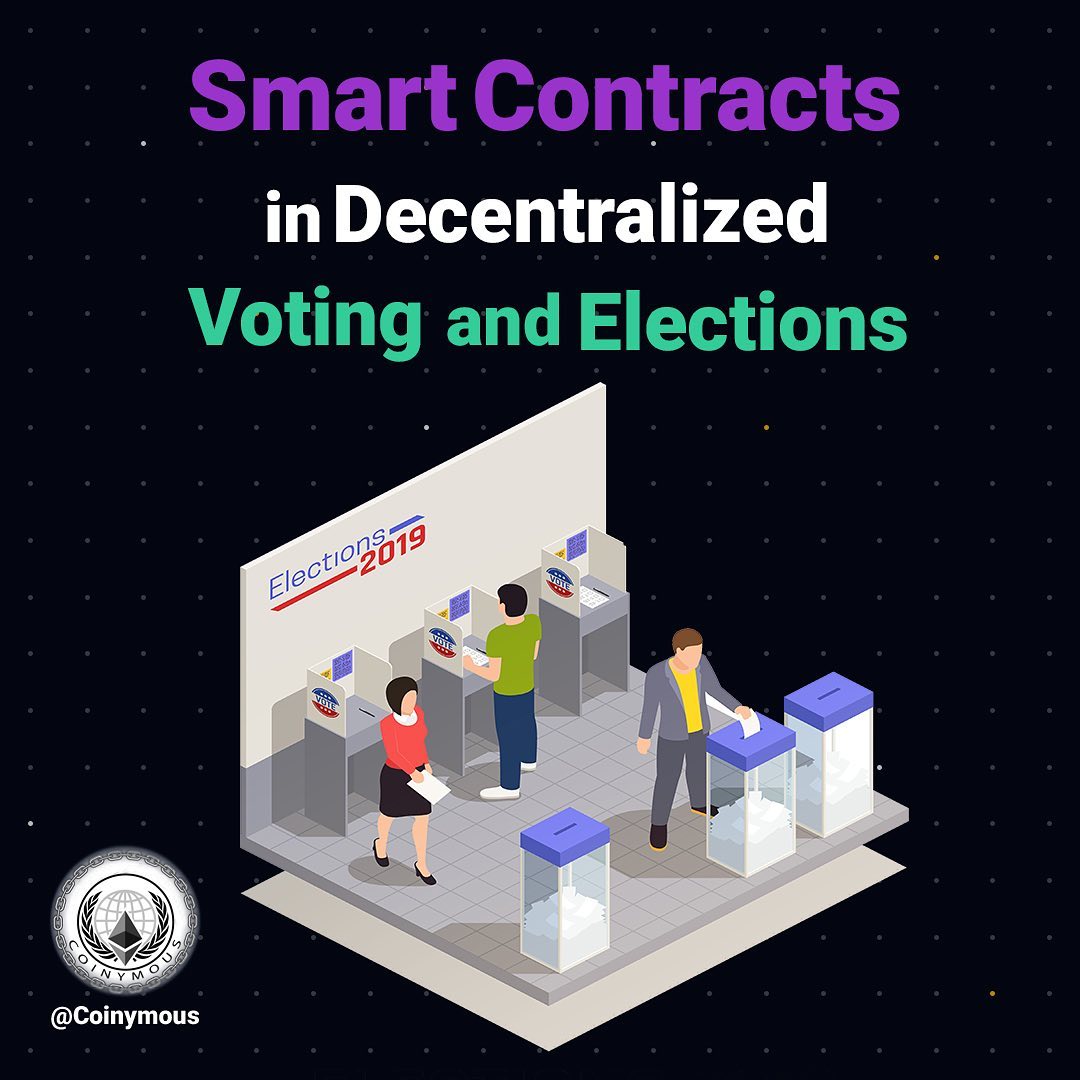Smart Contracts in Decentralized Voting and Elections 🗳️🏛️
Smart contracts revolutionize decentralized voting and elections by providing transparent, secure, and efficient mechanisms, ensuring trust, inclusivity, and integrity in the democratic process. This integration of technology and democracy holds the potential to transform the way we conduct and participate in elections.

Introduction:
Decentralized voting and elections are undergoing a transformative shift with the introduction of smart contracts. By leveraging blockchain technology, smart contracts provide a secure, transparent, and tamper-proof solution for conducting fair and efficient voting processes. In this blog post, we will explore the potential of smart contracts in decentralized voting and elections, highlighting the benefits, challenges, and the impact they have on the democratic landscape.
The Need for Decentralized Voting Systems:
Traditional voting systems often face challenges such as voter fraud, lack of transparency, and limited accessibility. Decentralized voting systems aim to address these issues by leveraging the power of blockchain technology and smart contracts. These systems ensure trust, security, and inclusivity, allowing for more transparent and democratic elections.
How Smart Contracts Enhance Decentralized Voting:
- Transparency and Security: Smart contracts provide an immutable and transparent record of all voting activities. Each vote is recorded on the blockchain, making it tamper-proof and eliminating the risk of fraud or manipulation. This enhances trust in the voting process and ensures the integrity of the results.
- Accessibility and Inclusivity: Decentralized voting systems powered by smart contracts enable anyone with an internet connection to participate in the voting process. This includes individuals who may face barriers to traditional voting, such as those living abroad or with disabilities. By removing geographical restrictions, decentralized voting systems promote inclusivity and increase voter turnout.
- Automation and Efficiency: Smart contracts automate the entire voting process, from voter registration to ballot counting. This eliminates the need for manual intervention and minimizes human error, resulting in more efficient and accurate elections. Additionally, the use of smart contracts reduces administrative costs and streamlines the overall voting process.
Challenges and Considerations:
- Identity Verification: Ensuring the authenticity of voters' identities in a decentralized manner can be a challenge. Solutions such as digital identities or decentralized identity protocols are being developed to address this issue.
- Scalability: As decentralized voting systems gain popularity, scalability becomes a crucial consideration. Optimizing blockchain networks and implementing layer 2 solutions can help overcome scalability challenges.
- Regulatory Compliance: Adhering to existing electoral laws and regulations can be complex in decentralized voting systems. Collaborating with legal experts and policymakers is essential to ensure compliance and build trust in the system.
Impact and Future Outlook:
The integration of smart contracts in decentralized voting systems has immense potential to revolutionize the democratic process. By enhancing transparency, accessibility, and efficiency, smart contracts empower individuals and strengthen democratic principles. As the technology evolves and gains wider adoption, we can expect to see decentralized voting systems being implemented at various levels, including national, regional, and organizational elections.
Conclusion:
Smart contracts are reshaping the landscape of decentralized voting and elections, offering a secure, transparent, and inclusive solution. By leveraging blockchain technology, smart contracts enhance the trustworthiness of the voting process, ensure the integrity of results, and promote inclusivity. While challenges such as identity verification and scalability remain, the potential benefits of decentralized voting systems powered by smart contracts are significant. As we move forward, the integration of technology and democracy holds the promise of a more transparent, efficient, and participatory electoral process.